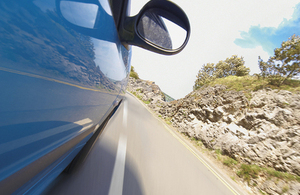Drivers who have epilepsy
DVLA want to support people to get back driving, but also have a responsibility to maintain UK road safety.

There are situations where DVLA revoke driver entitlements to ensure that the roads are safe for everyone - including you.
The Medical Standards around driving with epilepsy are very detailed and can be complicated. The following information provides the main facts and directs you to further information to help you understand how the standards apply to you.
Car drivers and motorcycle riders
Car drivers and motorcycle riders will usually be granted a 3-year licence as long as they:
- have not had an epileptic attack in the last 12 months, unless they have seizures that fall under one of the concessions
- comply with the advice of their doctor or consultant concerning treatment and check-ups
Once seizure free for 5 years, drivers will usually be issued a licence valid until they’re 70.
For a first unprovoked epileptic seizure, drivers must take 6 months off driving from the date of the seizure unless there is high risk of further seizures, which would stop a driver from driving for 1 year. DVLA must be informed of any seizure.
Lorry and bus drivers
Lorry and bus drivers will be given a driving licence if they remain seizure free for 10 years and without taking any anti epilepsy medication. The duration of the licence will depend on the individual medical details of the driver.
After a first unprovoked epileptic seizure, lorry and bus drivers must take 5 years off driving from the date of the seizure. They must also undergo an assessment by a neurologist and show no indication that the risk of a further seizure is greater than 2% per annum. The driver should have taken no anti-epilepsy medication throughout the 5-year period before getting a licence. DVLA must be informed of any seizure.